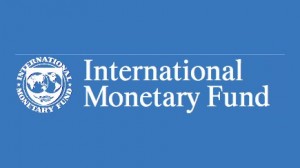
“Playing with fire,” is how the International Monetary Fund’s chief economist, Oliver Blanchard characterized the United Kingdom’s budget cutting policies a year ago. Today, the UK has the most robust economic growth of any of the G7 economies at 2.9 percent this year.
This British economic recovery has the IMF admitting that they were “wrong” with Managing Director Christine Lagarde saying on BBC Television, “Clearly the confidence building that has resulted from the economic policies adopted by the government has surprised many of us.”
However, the arrogance of even this admission by Ms. Lagarde came to the surface when she was asked if she had apologized to British officials who bore the political brunt of the IMF’s failed forecast by responding, “Do I have to go on my knees?”
Well, the answer is clearly no.
However, it would be nice if rather than the curt, “we were wrong,” if the IMF head would express how they were reforming the underlying principles behind their economic forecasting to become a better economic policy bellwether.
This is important to Americans concerned about our nation’s economic stagnation, national debt and continued high deficits as our nation has chosen the path of dramatic tax increases combined with relatively small cuts in government spending. Our nation has chosen a path of heavy regulation in both the health care and energy production arenas that impose hidden taxes on consumers through higher prices, diverting spending away from the rest of the economy to these artificially inflated sectors.
Yet, the IMF prescription for the United States laid out in the Wall Street Journal back in 2011 called for taxes to be increased by 35 percent, and for a cut to entitlements by the same percentage.
Assuming that the IMF economic team can learn from the UK experience, one wonders how they would change this proscription for restoring U.S. economic prosperity.
Perhaps they have learned that when government consumes a nation’s wealth, it deprives the country of the capital oxygen it needs to grow and thrive.
They might have even figured out when looking at the U.S. economy that a government’s regulatory regime can play as big of a role in depressing private sector growth as a stifling tax increase.
And they might have even come across the theory that huge budget deficits fueled entirely by increases in spending that have been baked into the economic cake by prior liberal governments can only be fixed by cutting so-called mandatory spending.
Their admission of error in decrying British austerity a year ago, should be met with the type of top to bottom re-evaluation in their economic models against the real world impacts. In 2011, they got half the puzzle right about the U.S. economy – auto-pilot spending on social welfare programs has gotten out of control. It is the failure to rein in this “mandatory” spending, which constitutes more than 60 percent of the federal budget, that has our economy flat-lined.
No one should expect Lagarde to beg forgiveness, but until the IMF revisits their economic assumptions that led to their being absolutely wrong about the impact of major government cuts on the UK economy, please excuse the rest of us if we disregard their future blatherings.
No need to beg Christine, just hold those responsible for the failed forecast responsible, and modify your assumptions before providing us any future pearls of wisdom from on high.
Rick Manning is the Vice President of Public Policy and Communications for Americans for Limited Government.






